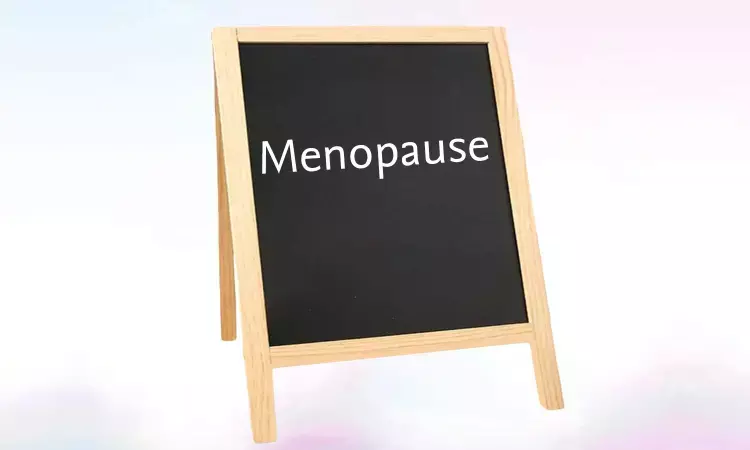- Home
- Medical news & Guidelines
- Anesthesiology
- Cardiology and CTVS
- Critical Care
- Dentistry
- Dermatology
- Diabetes and Endocrinology
- ENT
- Gastroenterology
- Medicine
- Nephrology
- Neurology
- Obstretics-Gynaecology
- Oncology
- Ophthalmology
- Orthopaedics
- Pediatrics-Neonatology
- Psychiatry
- Pulmonology
- Radiology
- Surgery
- Urology
- Laboratory Medicine
- Diet
- Nursing
- Paramedical
- Physiotherapy
- Health news
- Fact Check
- Bone Health Fact Check
- Brain Health Fact Check
- Cancer Related Fact Check
- Child Care Fact Check
- Dental and oral health fact check
- Diabetes and metabolic health fact check
- Diet and Nutrition Fact Check
- Eye and ENT Care Fact Check
- Fitness fact check
- Gut health fact check
- Heart health fact check
- Kidney health fact check
- Medical education fact check
- Men's health fact check
- Respiratory fact check
- Skin and hair care fact check
- Vaccine and Immunization fact check
- Women's health fact check
- AYUSH
- State News
- Andaman and Nicobar Islands
- Andhra Pradesh
- Arunachal Pradesh
- Assam
- Bihar
- Chandigarh
- Chattisgarh
- Dadra and Nagar Haveli
- Daman and Diu
- Delhi
- Goa
- Gujarat
- Haryana
- Himachal Pradesh
- Jammu & Kashmir
- Jharkhand
- Karnataka
- Kerala
- Ladakh
- Lakshadweep
- Madhya Pradesh
- Maharashtra
- Manipur
- Meghalaya
- Mizoram
- Nagaland
- Odisha
- Puducherry
- Punjab
- Rajasthan
- Sikkim
- Tamil Nadu
- Telangana
- Tripura
- Uttar Pradesh
- Uttrakhand
- West Bengal
- Medical Education
- Industry
Non-hormonal treatment for menopausal symptoms offers hope of relief

AURORA, Colo. - A non-hormonal therapy to treat hot flashes and other symptoms associated with menopause was found to be effective in a recent clinical trial, according to a published study by a team of researchers including faculty from the University of Colorado School of Medicine.
Fezolinetant, an oral, non-hormone therapy in clinical development, offers relief for hot flashes and night sweats, which are the most common menopause-associated symptoms for which women seek treatment. About 80 percent of American women experience these symptoms.
"An effective alternative to estrogen for the treatment of hot flashes is needed to provide better care," said Nanette Santoro, chair of the Department of Obstetrics and Gynecology at the University of Colorado School of Medicine, and an author of the study published online this week by the journal Menopause. "There are some medications that can be used, but all have significant side effects and are of lesser efficacy than estrogen."
The study, published online by the journal Menopause, reviewed the experience of 352 women with moderate to severe menopausal vasomotor symptoms, such as hot flashes, who were enrolled in a 12-week study that compared treatment with fezolinetant versus a placebo. The treatment was tested in a range of dosages.
"The occurrence of VMS [vasomotor symptoms] interfere with sleep, concentration, memory, work productivity, and personal relationships and has been linked to feelings of depression, irritability, anxiety, fatigue, and social embarrassment/isolation," Santoro and her co-authors write. "All of these factors contribute to the observed negative influence of VMS on psychological well-being and health-related quality of life."
VMS symptoms are triggered by neuron activity that affects the thermoregulatory functioning of the brain. Estrogen helps regulate that activity, but during menopause estrogen levels decline and no longer modulate as effectively. Fezolinetant works by blocking neurokinin B (NKB) signaling and normalizing KNDy (kisspeptin/NKB/dynorphin) neuron activity.
In this study, more than 80 percent of the women taking fezolinetant reported a reduction in symptoms and more than half of the women taking the treatment indicated a reduction of symptoms of 90 percent or greater. Participants recorded their symptoms daily in an e-dairy and filled out quality-of-life questionnaires. They had a mean age of 54.6 years old. A majority of women (73 percent) self-identified as white, 25 percent Black, 1 percent Asian and 1 percent other.
"This is an extraordinarily successful result and offers promise of relief to millions of women," said Santoro. "This study paves the way for further studies of a longer treatment duration and in a larger group of people."
Hina Zahid Joined Medical Dialogue in 2017 with a passion to work as a Reporter. She coordinates with various national and international journals and association and covers all the stories related to Medical guidelines, Medical Journals, rare medical surgeries as well as all the updates in the medical field. Email: editorial@medicaldialogues.in. Contact no. 011-43720751
Dr Kamal Kant Kohli-MBBS, DTCD- a chest specialist with more than 30 years of practice and a flair for writing clinical articles, Dr Kamal Kant Kohli joined Medical Dialogues as a Chief Editor of Medical News. Besides writing articles, as an editor, he proofreads and verifies all the medical content published on Medical Dialogues including those coming from journals, studies,medical conferences,guidelines etc. Email: drkohli@medicaldialogues.in. Contact no. 011-43720751


